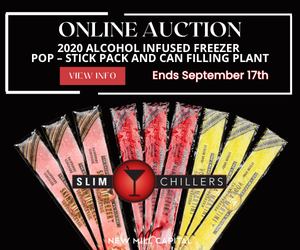The coronavirus pandemic is upon us, and so are some scary times. The concern over COVID-19 is rightly justified. After all, it’s a potentially deadly disease that science is trying to figure out on the fly as it spreads. If you’re a craft distiller – hell, if you run any small business venture – you already know coronavirus’ impact extends beyond health. Since March 1, there probably hasn’t been a day where you haven’t seen some variation of “the event has been cancelled due to coronavirus concerns” pop up on a news outlet website or in your inbox. If you have a tasting room or are permitted to serve cocktails in your space, your loyal customers may stay home for safety’s sake instead of bellying up to your bar. You’ve probably also seen the damage the disease can do to a city’s economy. The city of Austin projects a loss of around $350 million in revenue in the wake of SXSW’s cancellation based on prior financial estimates. If you’re familiar with Austin even in passing, you know that a nice percentage of that loss comes from the city’s plethora of booze-related ventures. Again, scary times.
As the coronavirus situation rapidly evolves, it’s easy to slip into a state of worry. This is fine and to be expected. It’s an emotion that is not uncommon when running a distillery even in times of good health, albeit on a smaller scale. The key to getting through this is to not let the sense of worry overwhelm. Now’s the time to take a step back, take a calming breath, and prepare your distillery to maintain the status quo as best as you can for the next few weeks.
If you’re planning on attending or presenting at an event or a conference, prepare for it to be cancelled and rescheduled. An ever-increasing number of states are banning large gatherings for the next several weeks, and event organizers may voluntarily pull the plug on their gathering regardless of state. This is obviously frustrating, since this also strikes opportunities for networking, engaging with distributors and on- and off-premise accounts, and brand awareness. Yet as COVID-19 continues to spread, it feels increasingly necessary, to the point where holding a large-scale event for hundreds or thousands of people seems like an arrogant and potentially reputation-damaging move. If you’re involved in an event that’s cancelled or feels destined to cancel, your best bet here is to keep abreast of event rescheduling or refunding. Just remember that this may be a slow process, given the situation’s uniqueness.
Unfortunately, there’s no guarantee that the fallout from this meddlesome virus will be slowed by April’s end. This may make planning for future events in late spring and early summer difficult. While there’s value in being at an industry or consumer show that you were planning to sign up for, there’s also the reality that you may be signing up for an empty space, and there’s no way to know for sure until the calendar inches closer to the dates. In these situations, it could be prudent to reach out to the event’s organizers or public relations team and ask about their contingency plan should this issue linger. If you’re not satisfied with their answer, consider skipping.
It's also critical that you keep connected with your customers during this time. If you keep an e-mail database of your regulars and fans, or have a social media presence, use both judiciously to provide them with updates on what you are doing to help combat the spread of COVID-19. Let your clientele know as much as you can about your efforts to keep them safe. At the same time, it’s okay to remind customers you’re open, but do so in a way that doesn’t come across as a plea for their patronage. Some of your regulars may hesitate to visit for a few weeks, and that’s fine. They’ll be back soon enough. Lord knows, they’ll need a drink after things are said and done. Show them kindness, understanding, and respect for their decisions throughout your correspondences, and they will respond appropriately when the time comes.
And time is the other thing that you should bear in mind. Even though the scourge of the coronavirus is currently open-ended (which again may make registering for future events a little tricky), the hopeful view is that the current restrictions and precautions will run their course in a few weeks (but we may need to plan for worse). If this is indeed the case, then the distilling industry has dealt with a lot worse. Consider the Spanish flu that ripped through the globe in 1918-1919. Less than a year after the U.S. recovered from that pandemic, the 18th Amendment hit the scene and upended the booze industry for thirteen years. When COVID-19 mercifully passes, the worst industry threat you’ll have to worry about is the sober curious movement, which won’t really impact the craft distilling community all that much. In the grand scheme of things, these weeks will hopefully be viewed as a weirdly interesting point in 21st century history, a time period you’ll eventually be able to bore your grandkids about one living through day. Until then, may we suggest enjoying a drink.










